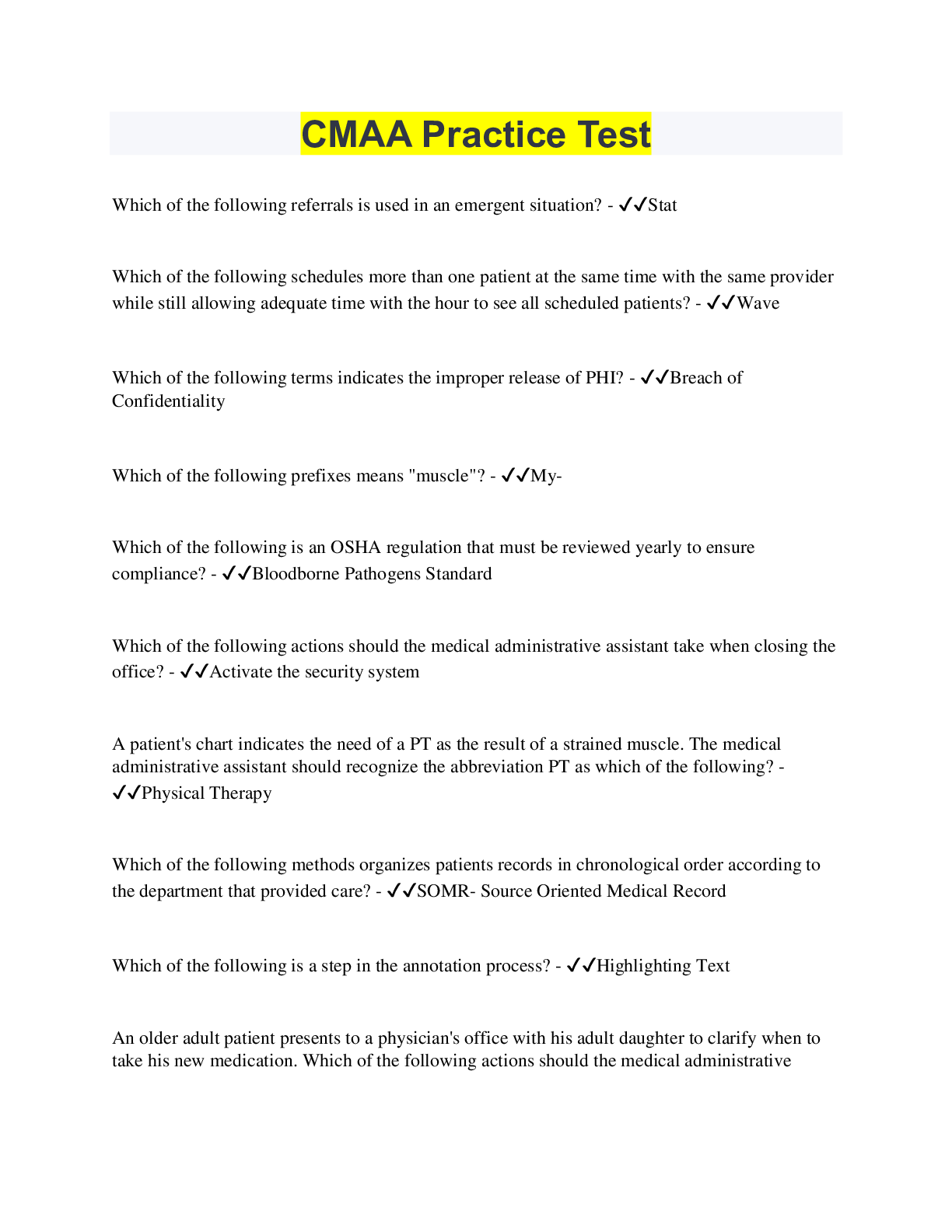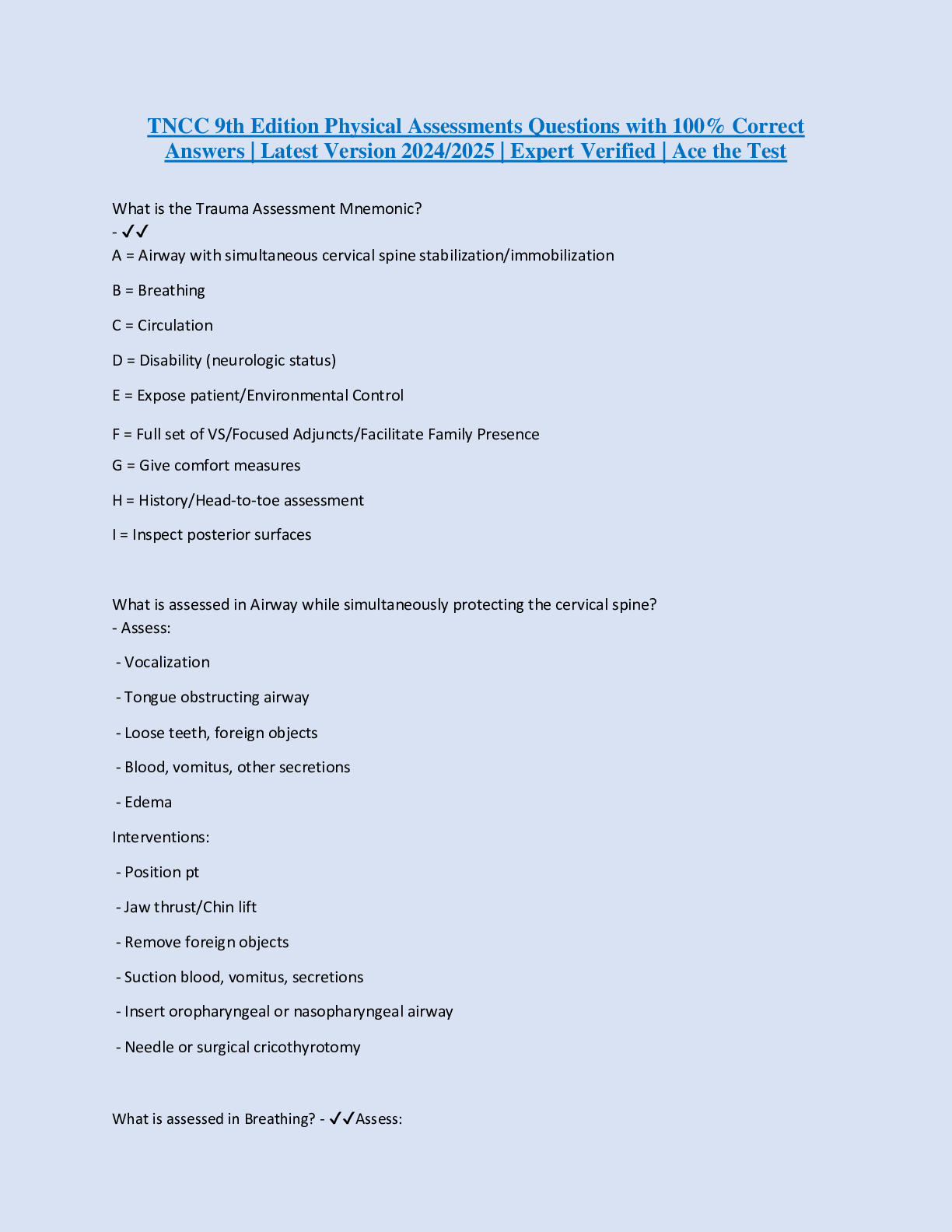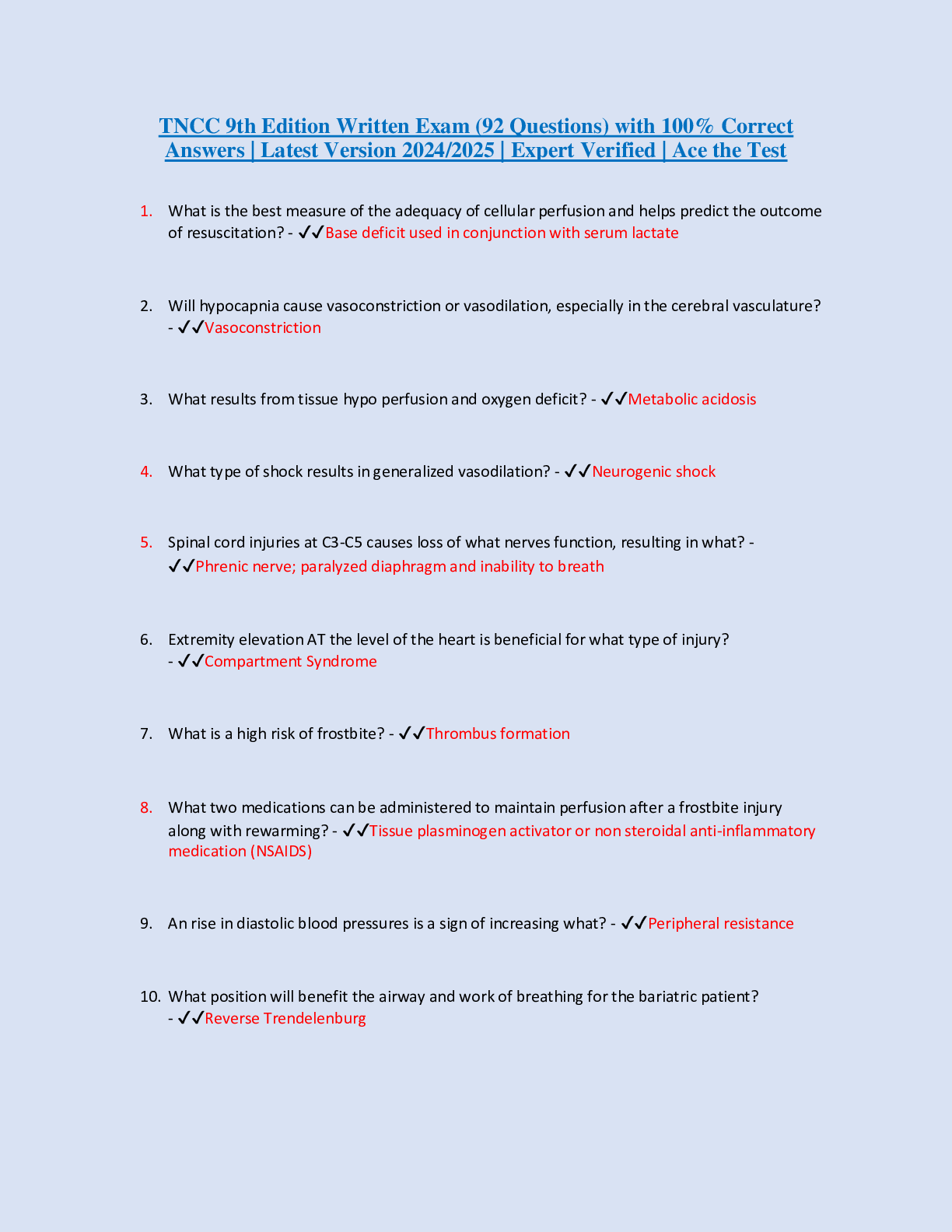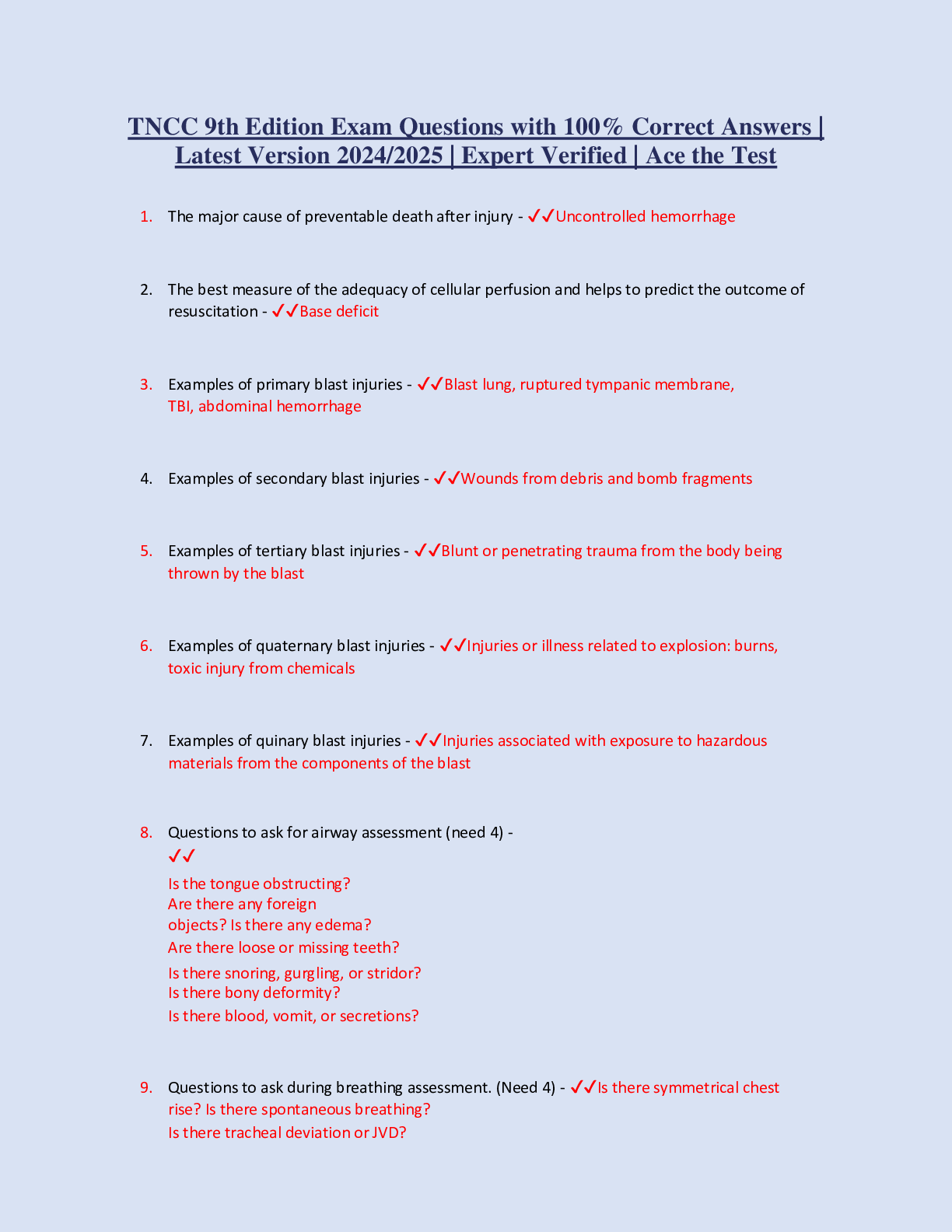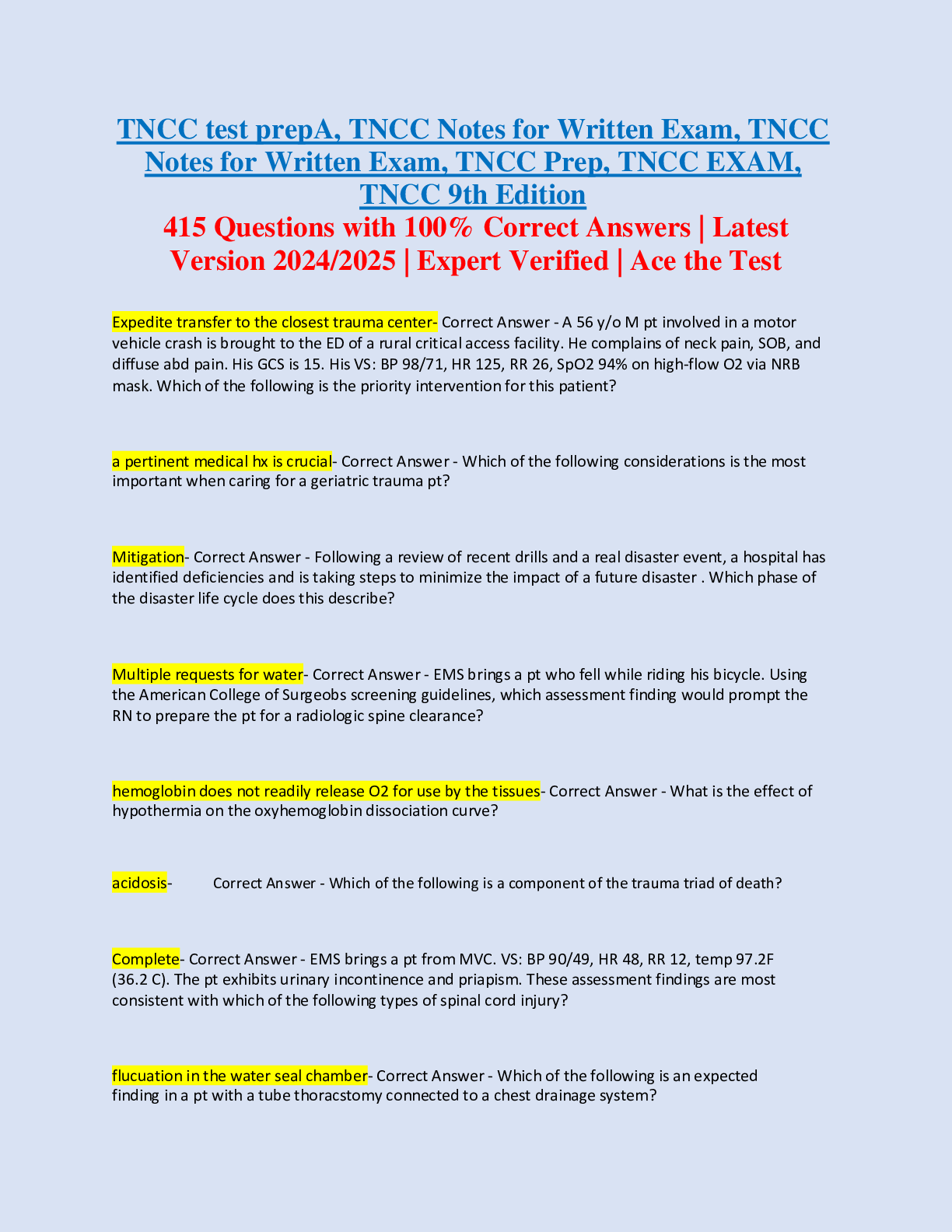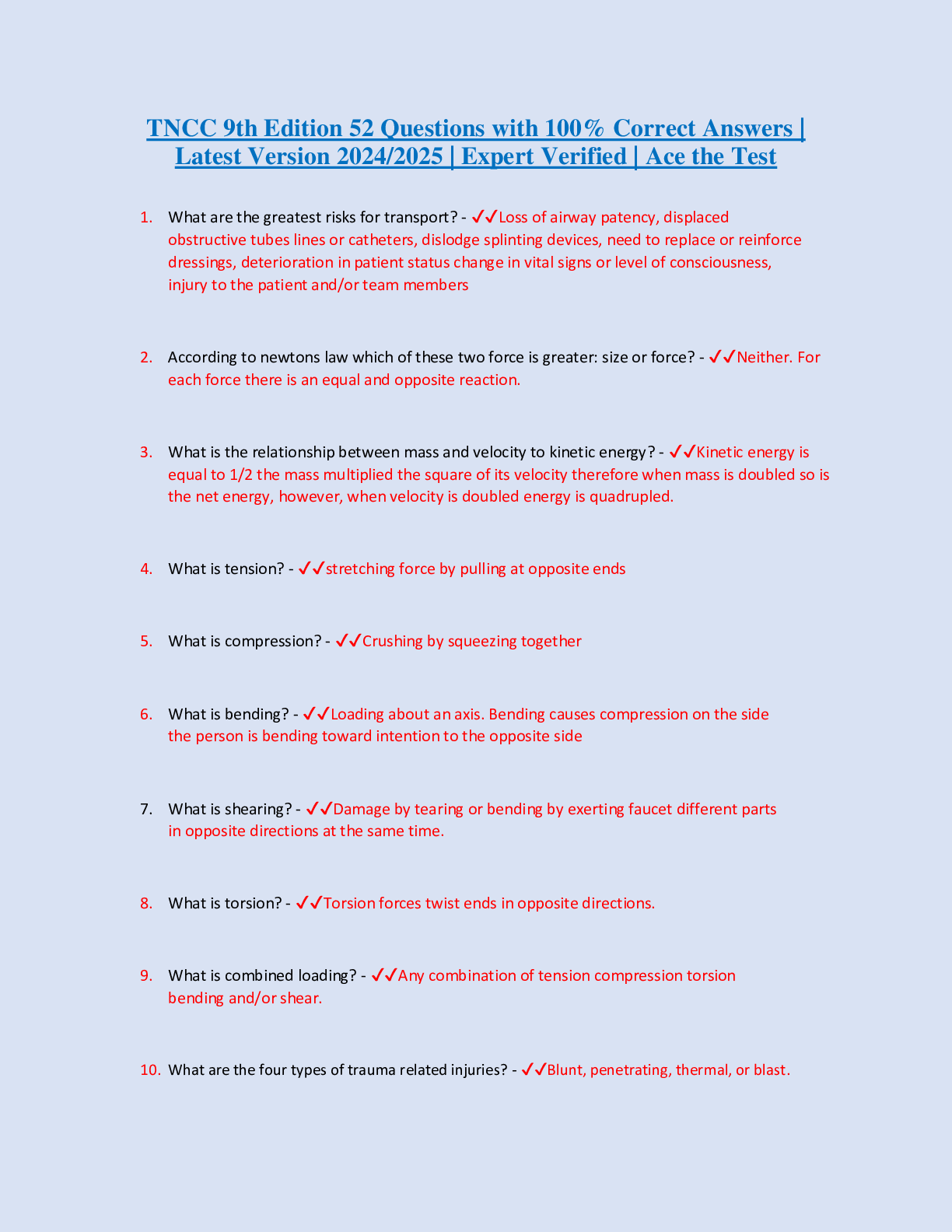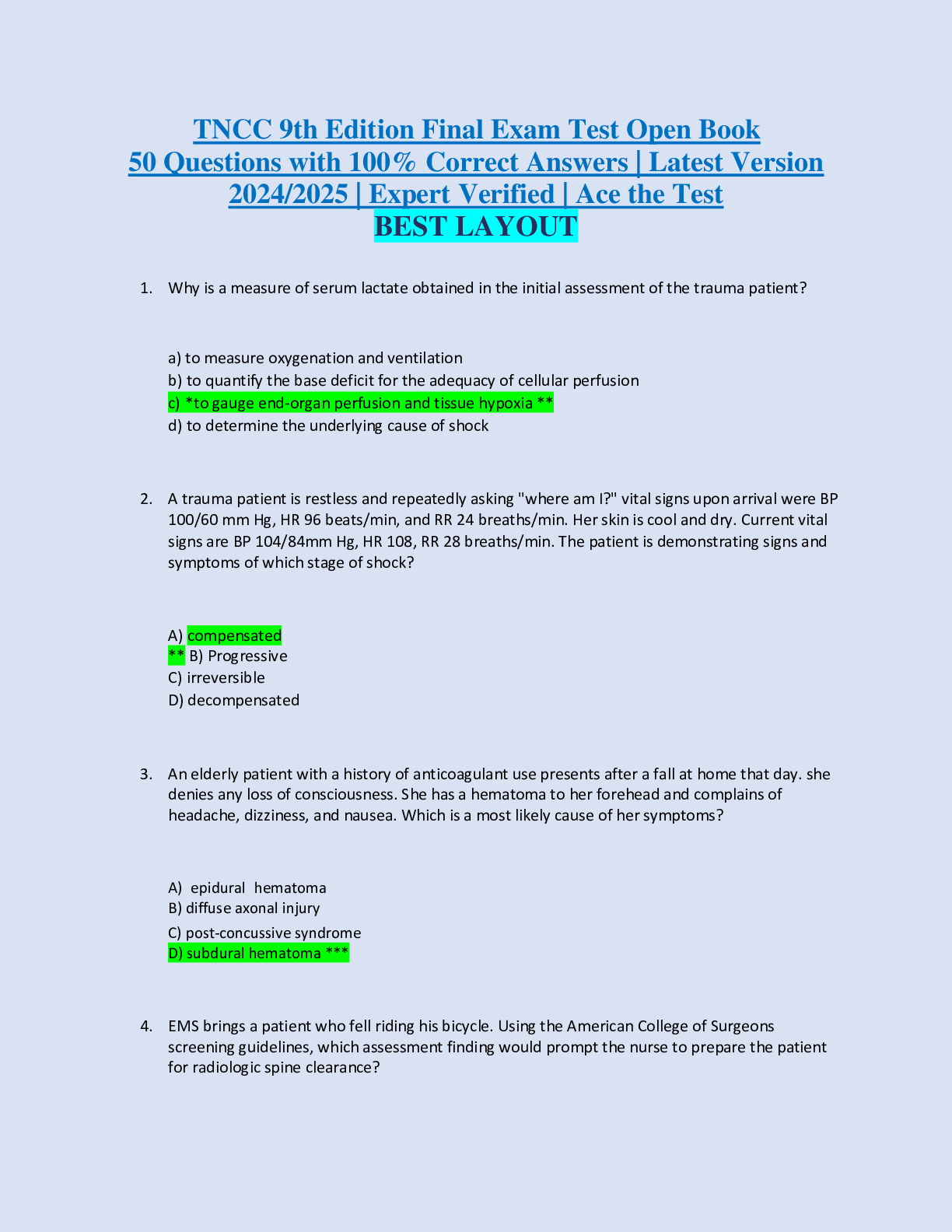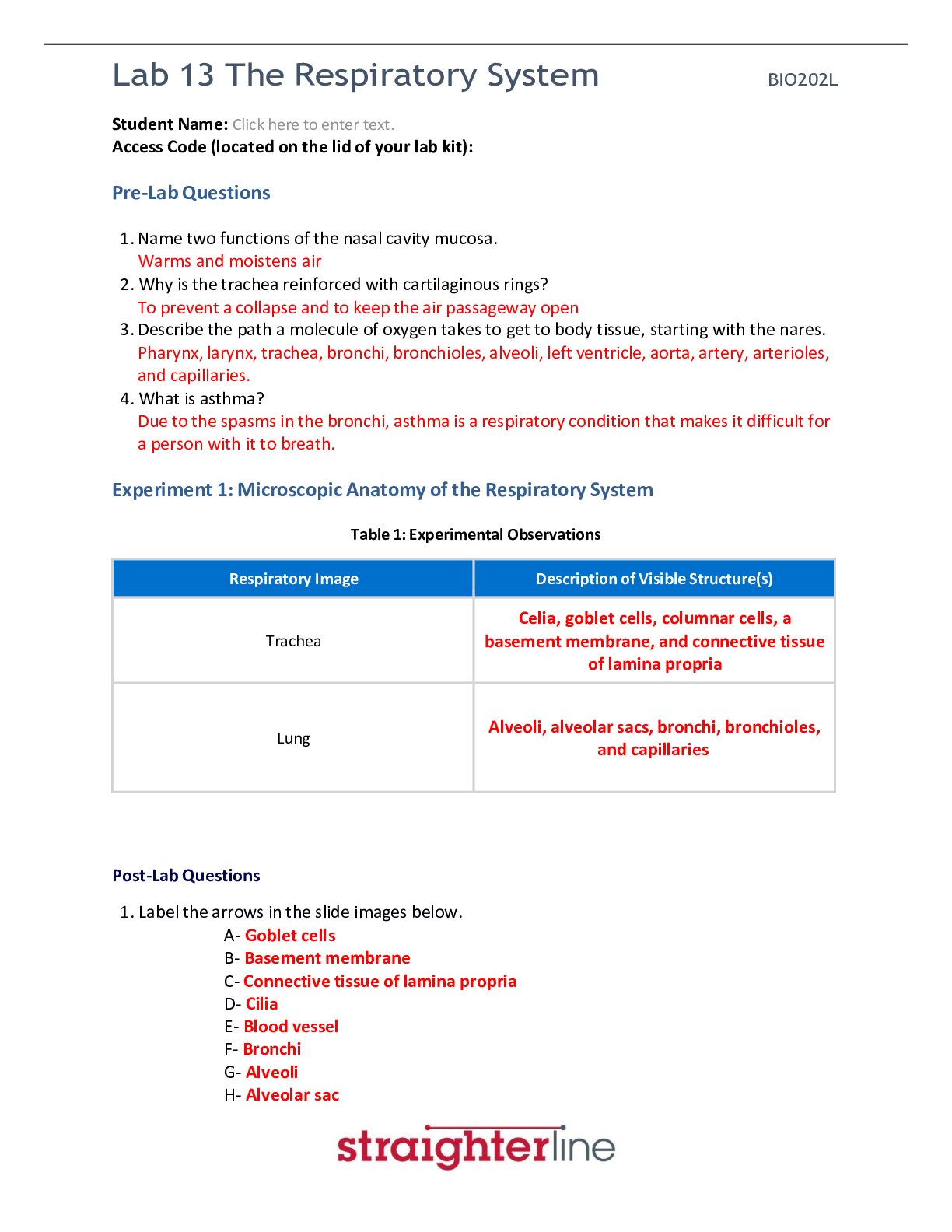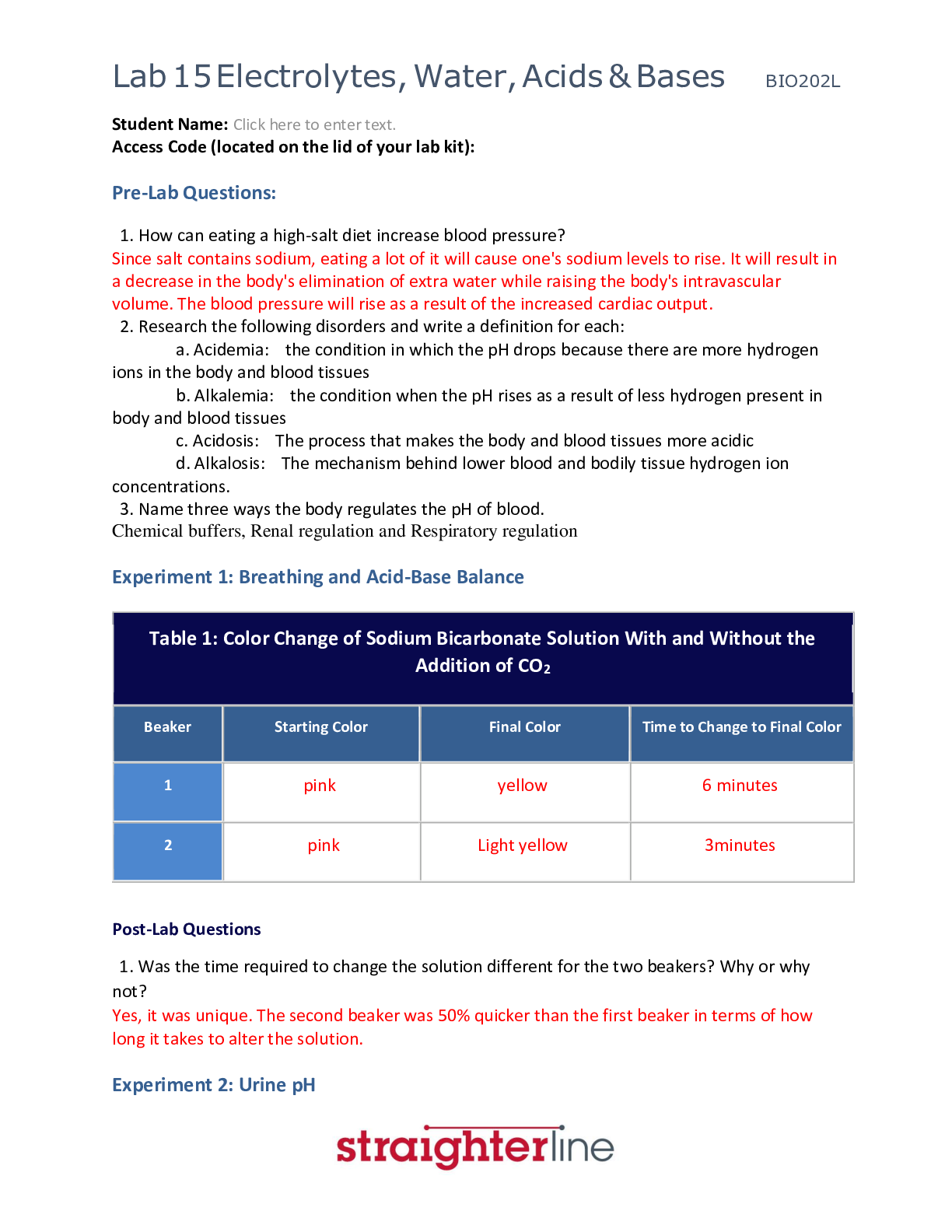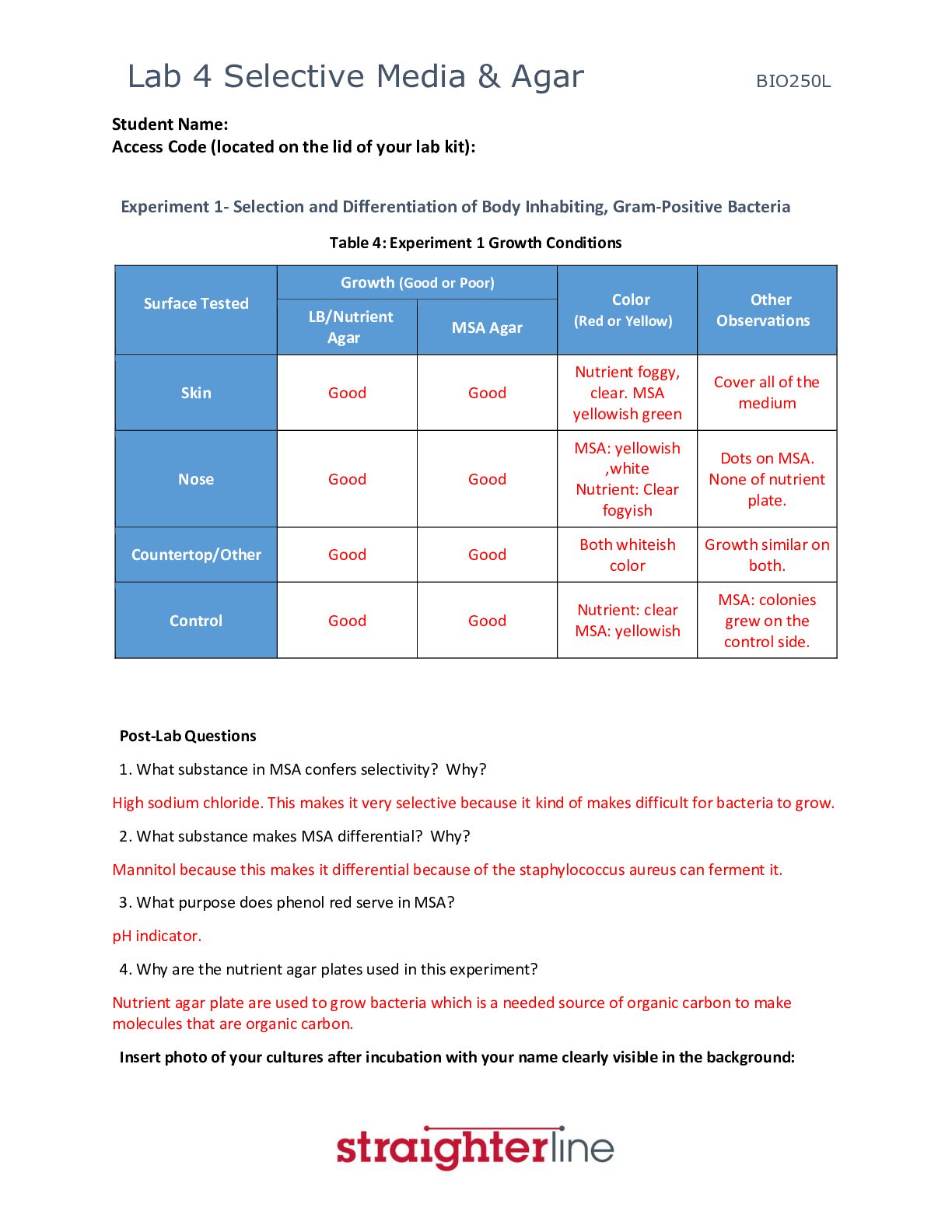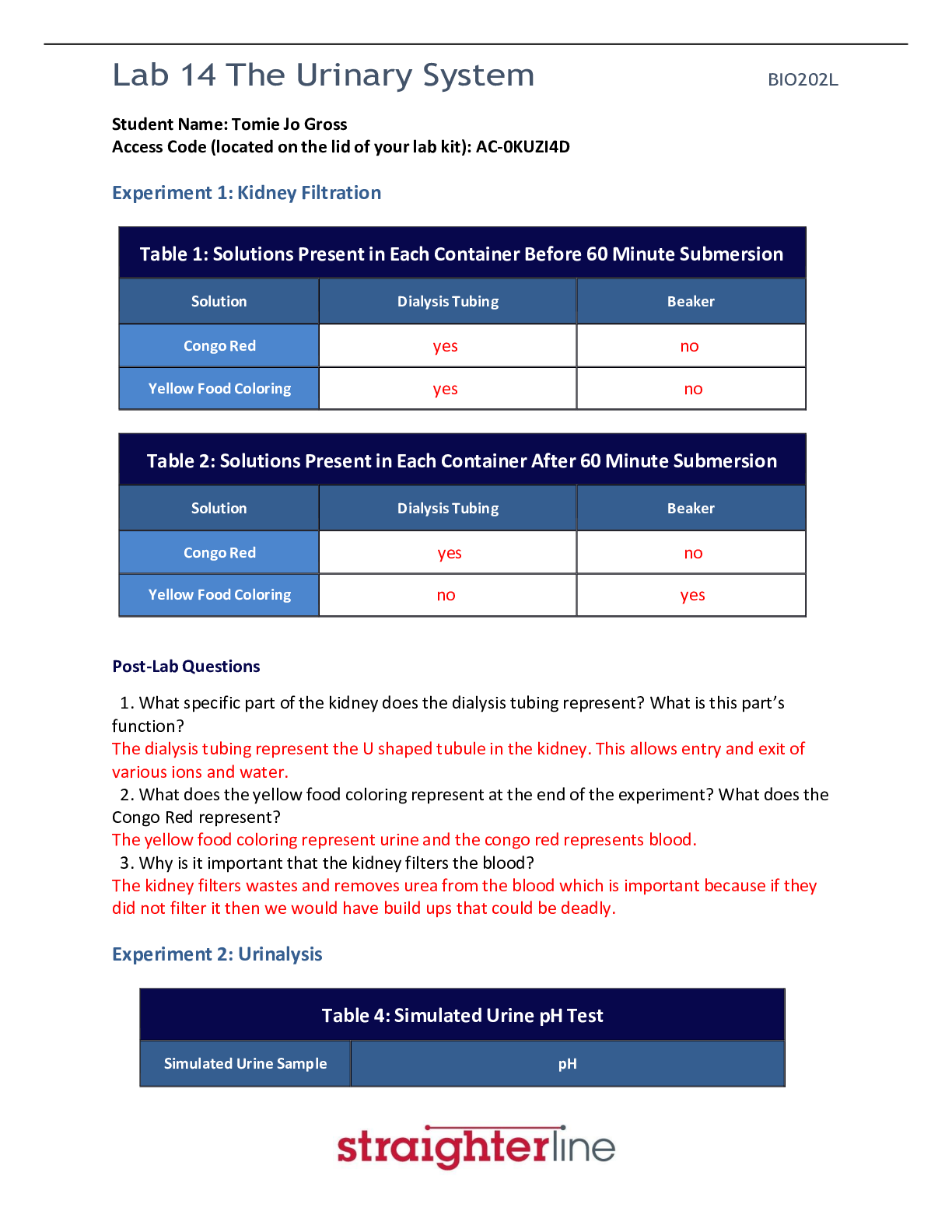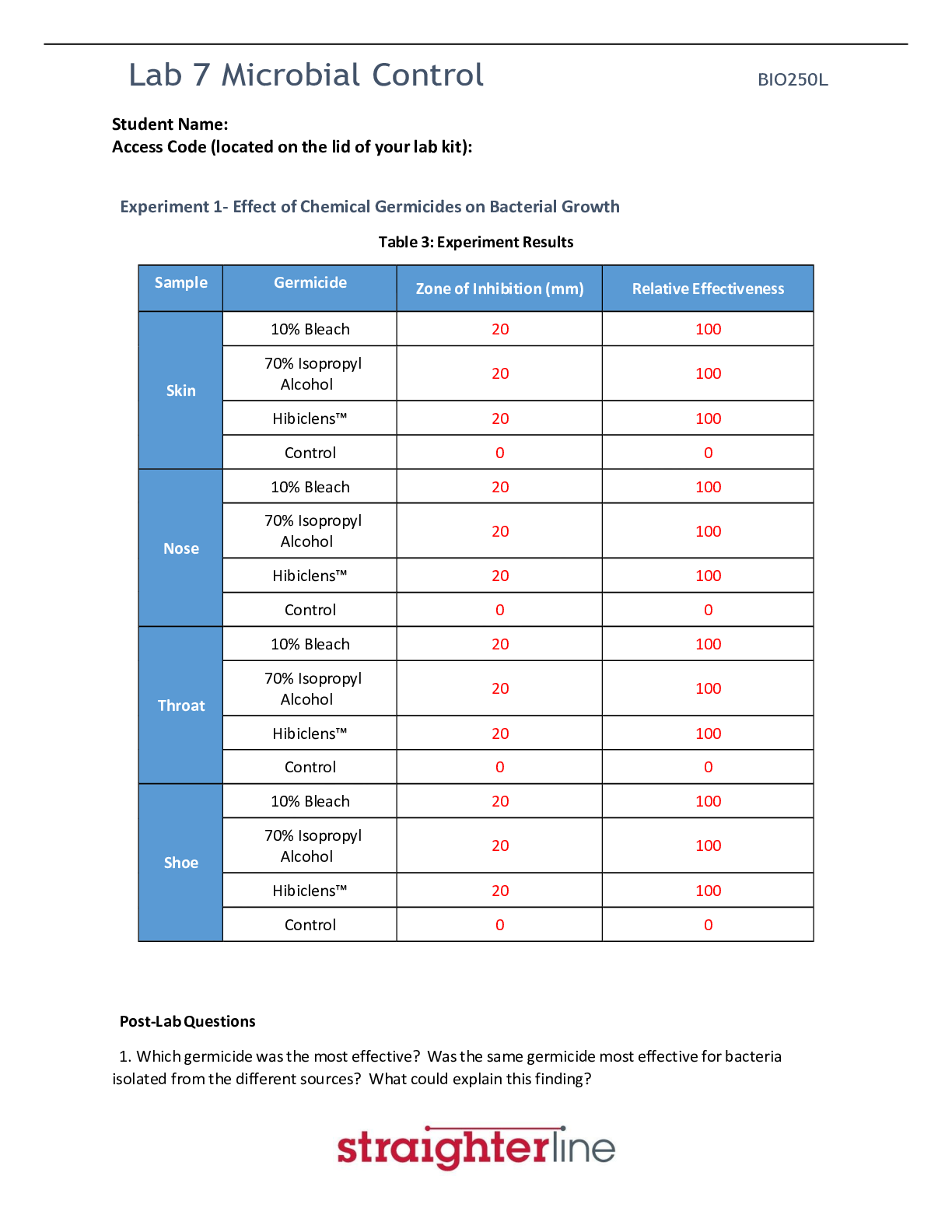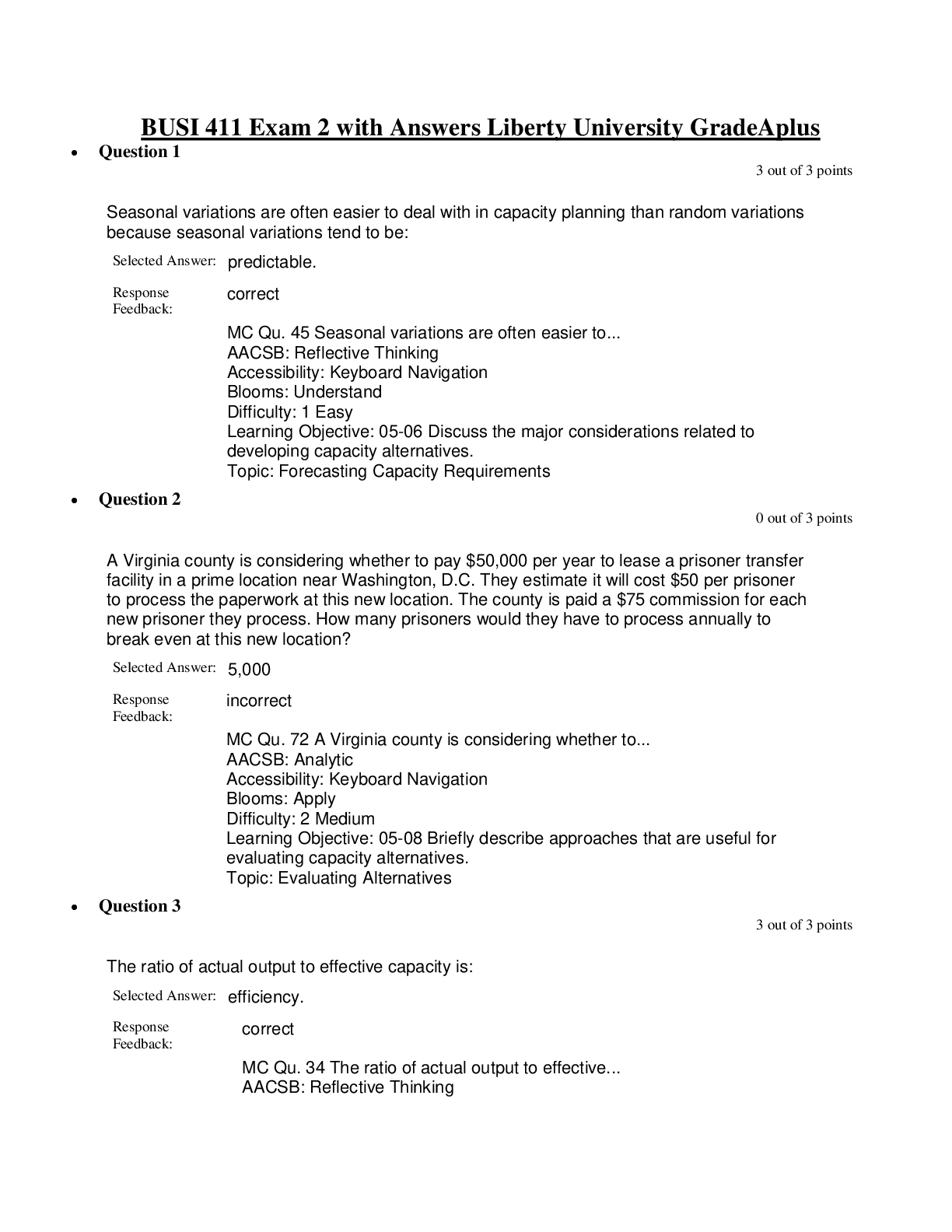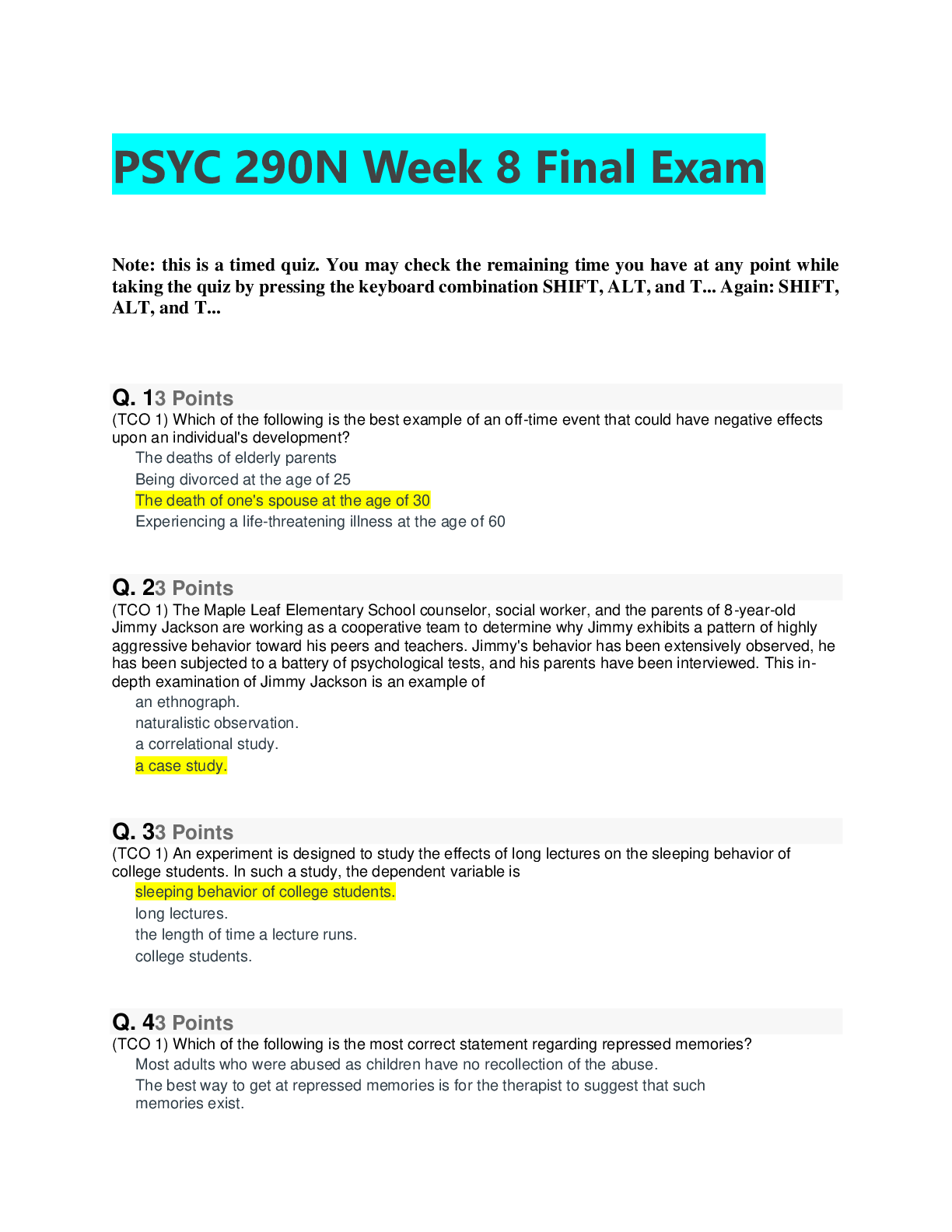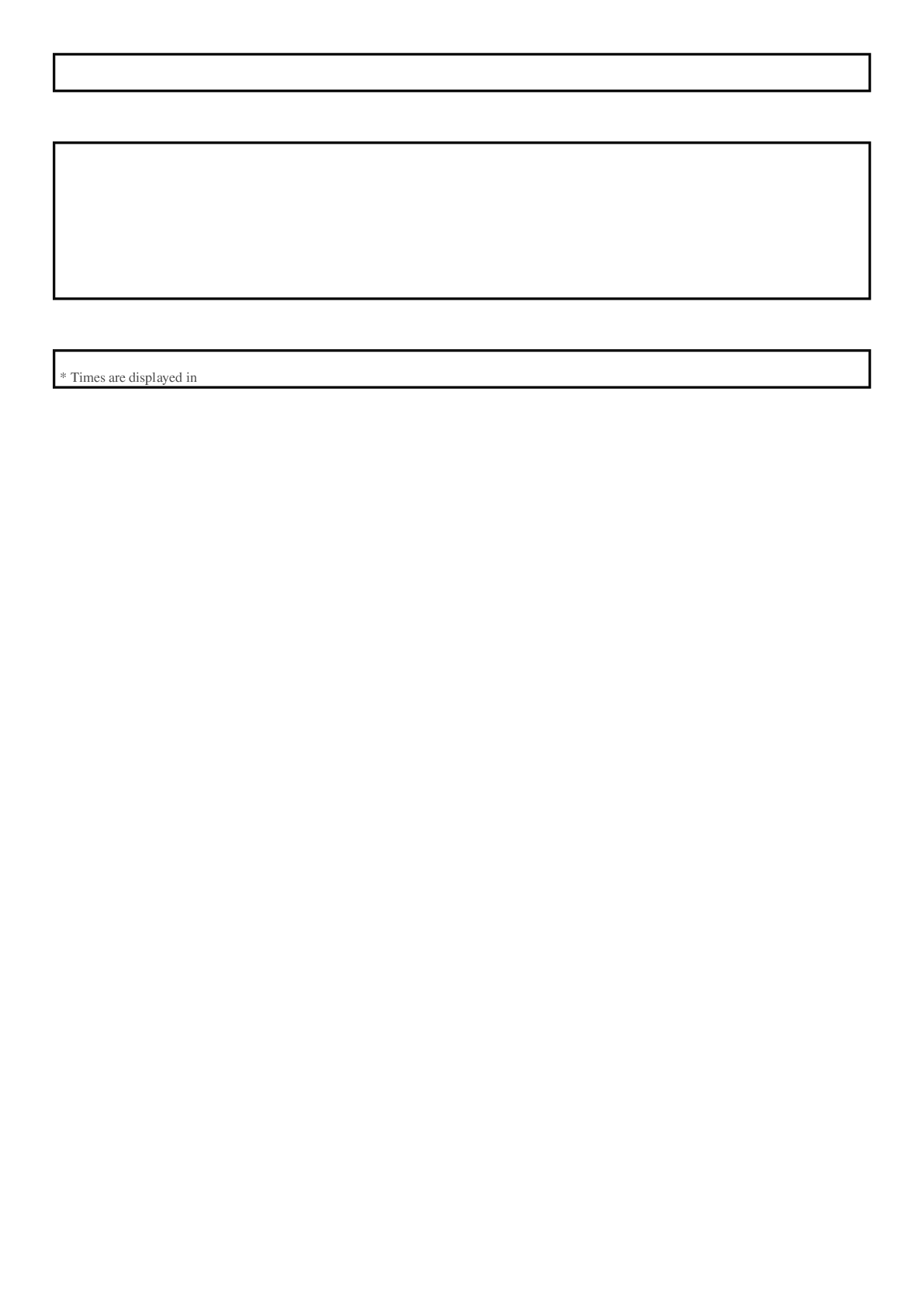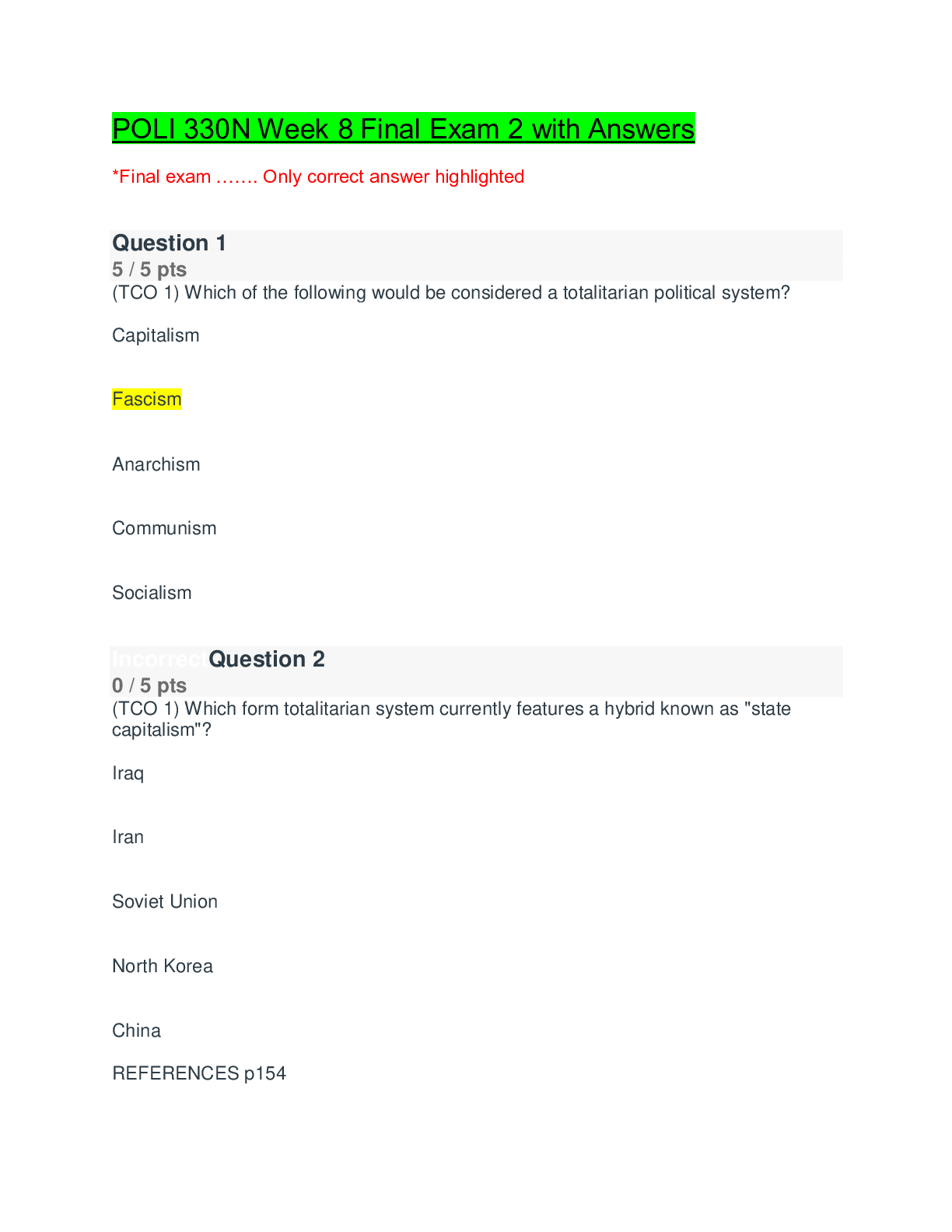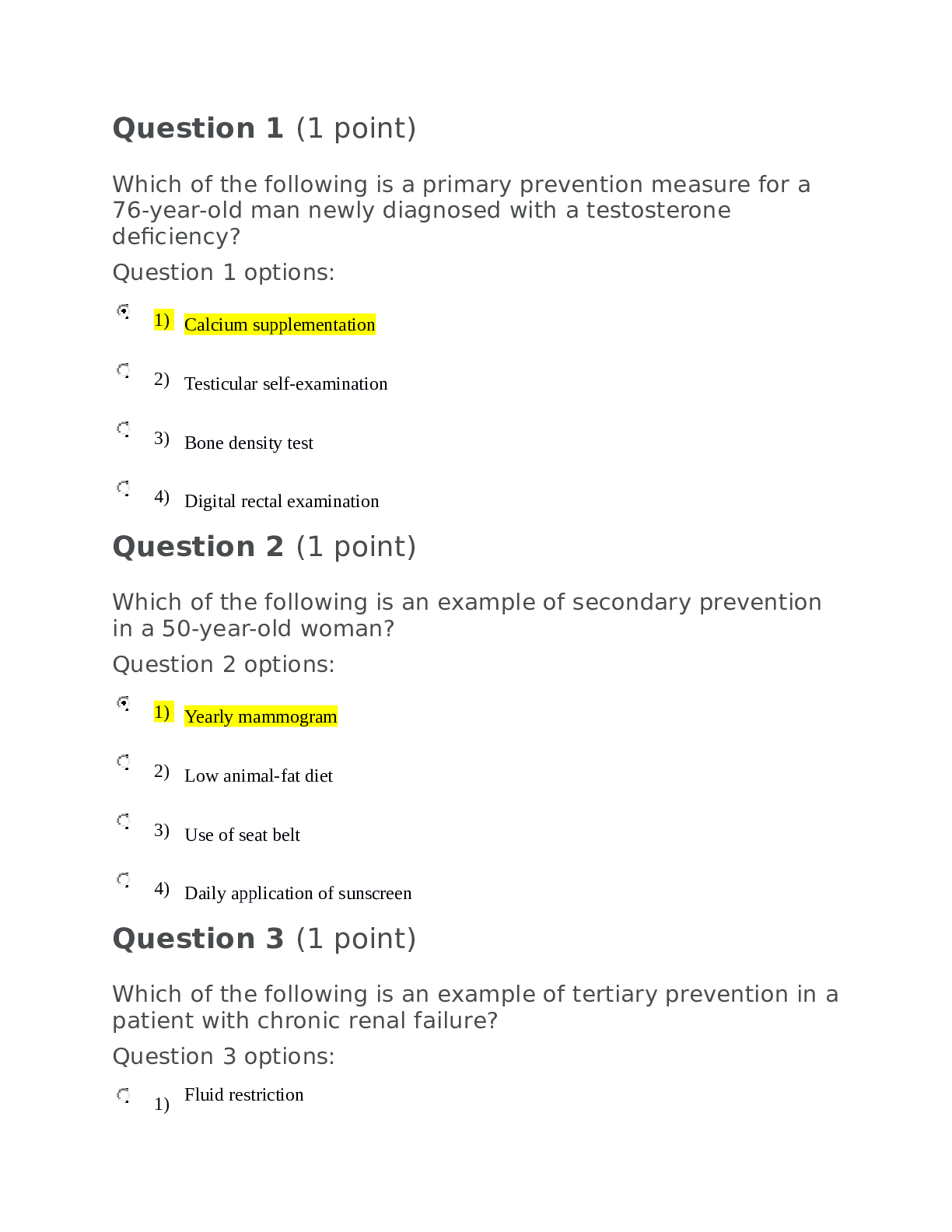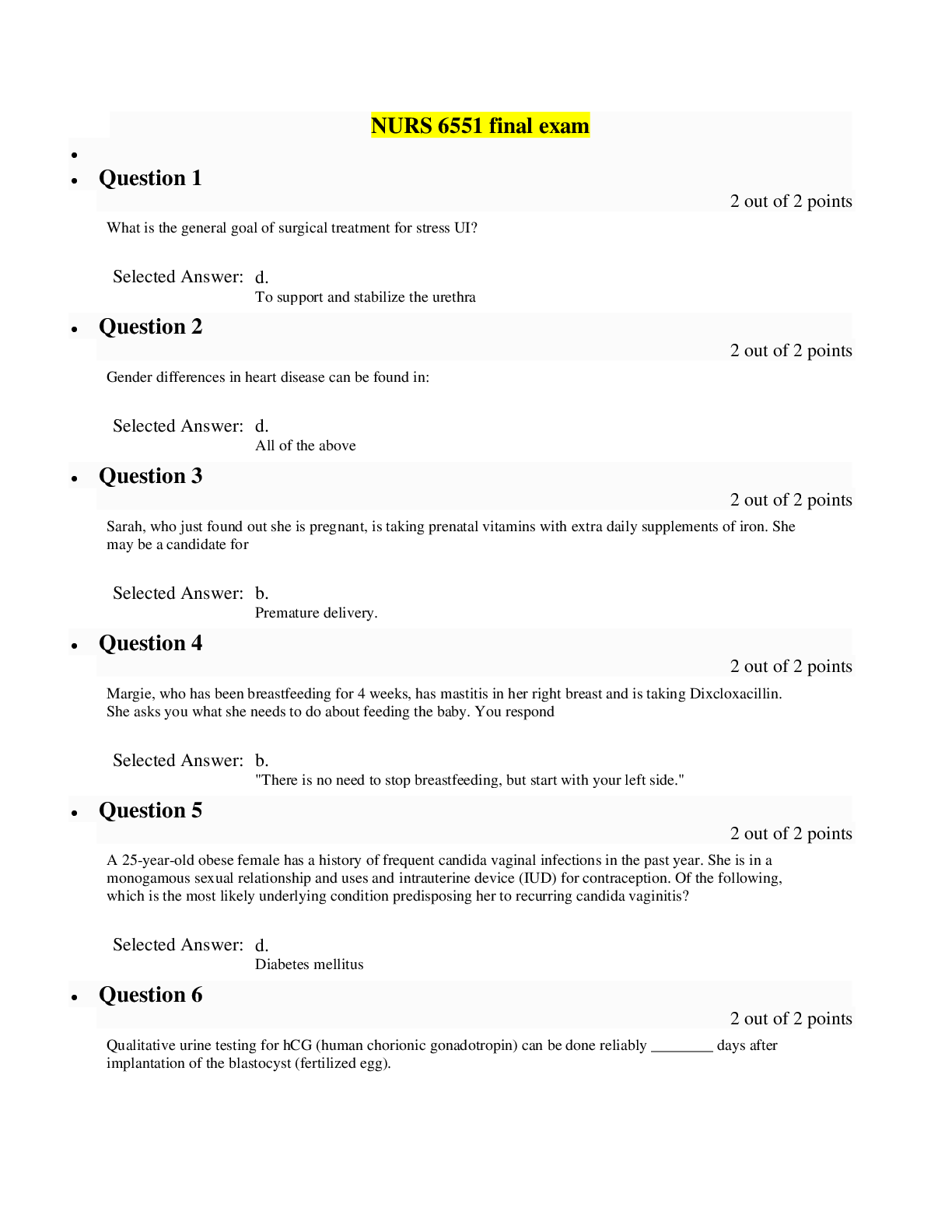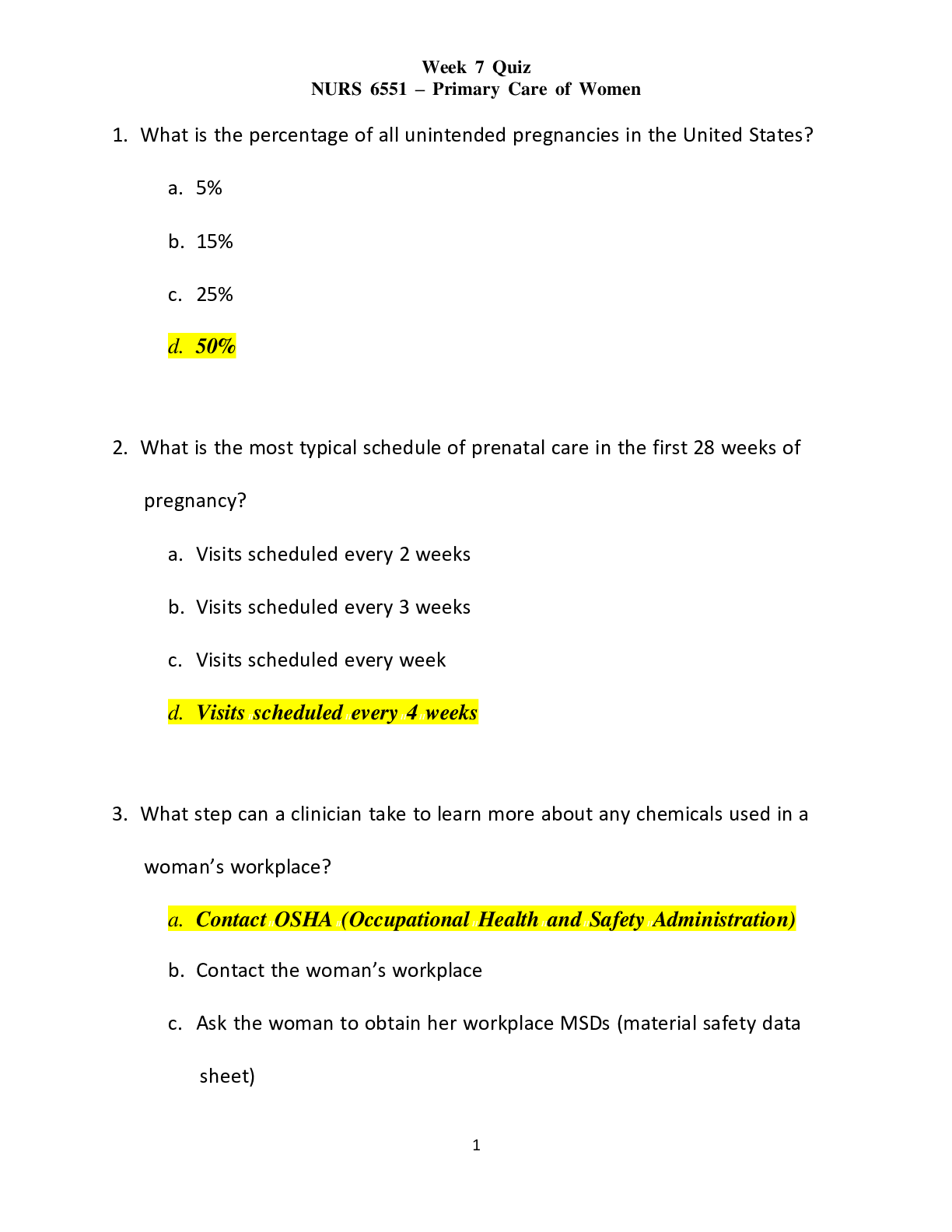Health Care > EXAM > AHIMA CCA: Exam 2 with Answers (100% Correct) 2022 (All)
AHIMA CCA: Exam 2 with Answers (100% Correct) 2022
Document Content and Description Below
1. Data security policies and procedures should be reviewed at least: a. Semi-annually b. Annually c. Every two years d. Quarterly - ✔✔Correct Answer: B All data security policies and proced... ures should be reviewed and evaluated at least every year to make sure they are up-to-date and still relevant to the organization (Johns 2011, 995). 2. Identify the correct ICD-9-CM diagnosis code(s) for a patient with near-syncope event and nausea. a. 780.2 b. 780.2, 787.02 c. 780.2, 787.01 d. 780.4, 787.02 - ✔✔Correct Answer: BNear-syncope and nausea are both signs and symptoms and therefore not integral to the other. Both conditions should be coded (Hazelwood and Venable 2012, 71). 3. The codes in the musculoskeletal section of CPT may be used by: a. Orthopedic surgeons only b. Orthopedic surgeons and emergency department physicians c. Any physician d. Orthopedic surgeons and neurosurgeons - ✔✔Correct Answer: C Any physician may use the codes in any section of CPT (AHIMA 2012a, 587). 4. In an EHR, what is the risk of copying and pasting? a. Reduction in the time required to document b. The system not recording who entered the data c. Quicker overall system response time d. System thinking that the original documenter recorded the note - ✔✔Correct Answer: B The system not recording who entered the data (Johns 2011, 433).5. Mr. Smith is seen in his primary care physician's office for his annual physical examination. He has a digital rectal examination and is given three small cards to take home and return with fecal samples to screen for colorectal cancer. Assign the appropriate CPT code to report this occult blood sampling. a. 82270 b. 82271 c. 82272 d. 82274 - ✔✔Correct Answer: A CPT code 82270 describes a test for occult blood using feces source for the purpose of neoplasm screening with the use of three cards or single triple card for consecutive collection (AMA 2012b, 417). 6. Identify the punctuation mark that is used to supplement words or explanatory information that may or may not be present in the statement of a diagnosis or procedure in ICD-9-CM coding. The punctuation does not affect the code number assigned to the case. The punctuation is considered a nonessential modifier, and all three volumes of ICD-9-CM use them. a. Parentheses ( ) b. Square brackets [ ] c. Slanted brackets [ ] d. Braces { } - ✔✔Correct Answer: AParentheses enclose supplementary words or explanatory information that may or may not be present in the statement of a diagnosis or procedure. They do not affect the code number assigned in the case. Terms in parentheses are considered nonessential modifiers, and all three volumes of ICD-9-CM use them. Bronchiectasis (fusiform) (postinfectious) (recurrent) is an example of a diagnosis statement with nonessential modifiers noted with parentheses (Schraffenberger 2012, 26-28). 7. Documentation regarding a patient's marital status; dietary, sleep, and exercise patterns; and use of coffee, tobacco, alcohol, and other drugs may be found in the: a. Physical examination record b. History record c. Operative report d. Radiological report - ✔✔Correct Answer: B A complete medical history documents the patient's current complaints and symptoms and lists his or her past medical, personal, and family history (Johns 2011, 63). 8. If an orthopedic surgeon attempted to reduce a fracture but was unsuccessful in obtaining acceptable alignment, what type of code should be assigned for the procedure? a. A "with manipulation" code b. A "without manipulation" code c. An unlisted procedure coded. An E/M code only - ✔✔Correct Answer: A The "with manipulation" code is used because the fracture was manipulated, even if the manipulation did not result in clinical anatomic alignment. See Musculoskeletal Guidelines, Definitions (AHIMA 2012a, 597). 9. What is the maximum number of diagnosis codes that can appear on the UB-04 paper claim form locator 67 for a hospital inpatient principal and secondary diagnoses? a. 35 b. 25 c. 18 d. 9 - ✔✔Correct Answer: B As of January 1, 2011, CMS allows a total of 25 ICD-9-CM diagnosis codes (one principal and 24 additional diagnoses) for 837 Institutional claims filing (Schraffenberger 2012, 66). 10. What type of standard establishes methods for creating unique designations for individual patients, healthcare professionals, healthcare provider organizations, and healthcare vendors and suppliers? a. Vocabulary standard b. Identifier standard c. Structure and content standardd. Security standard - [Show More]
Last updated: 1 year ago
Preview 1 out of 52 pages
Instant download
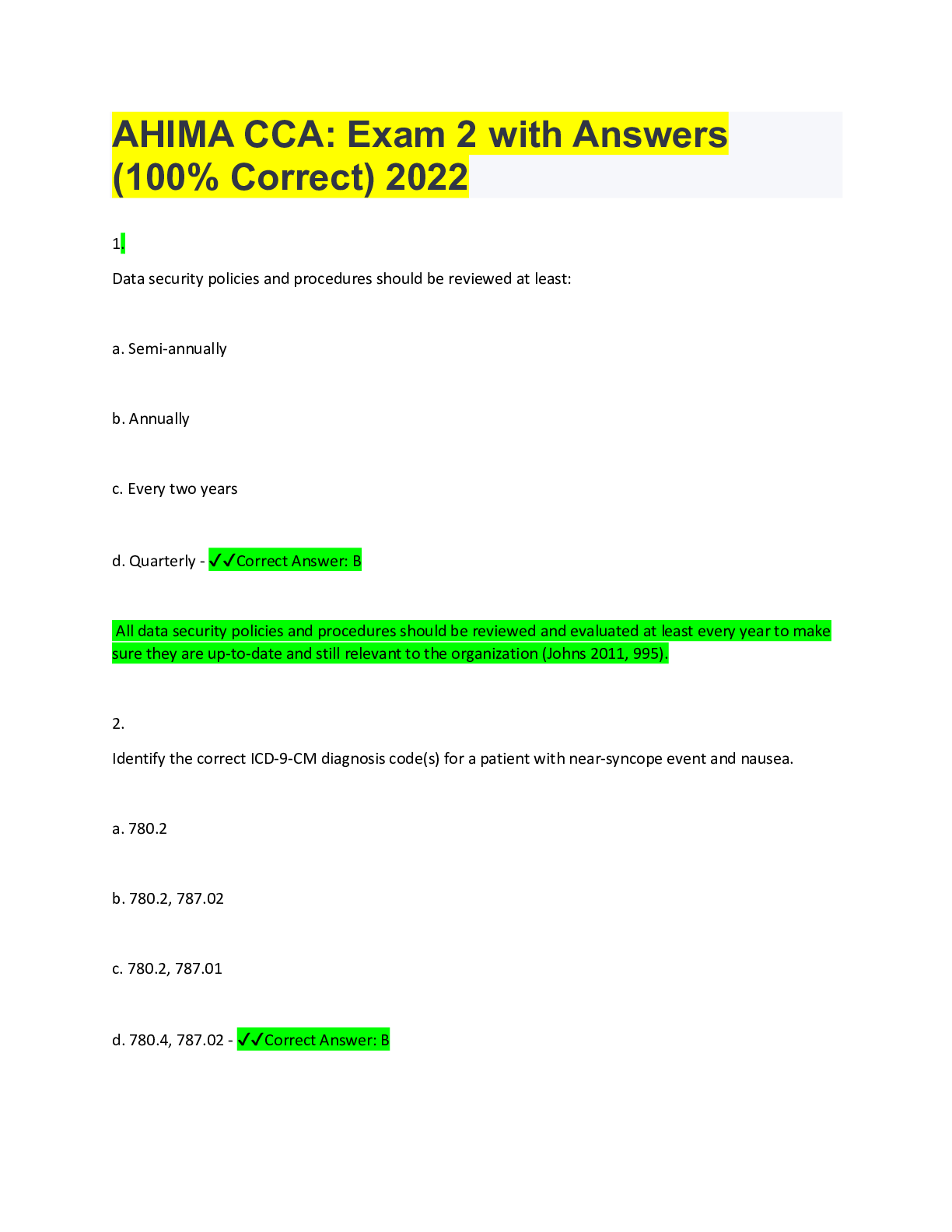
Buy this document to get the full access instantly
Instant Download Access after purchase
Add to cartInstant download
Reviews( 0 )
Document information
Connected school, study & course
About the document
Uploaded On
May 17, 2022
Number of pages
52
Written in
Additional information
This document has been written for:
Uploaded
May 17, 2022
Downloads
0
Views
123

